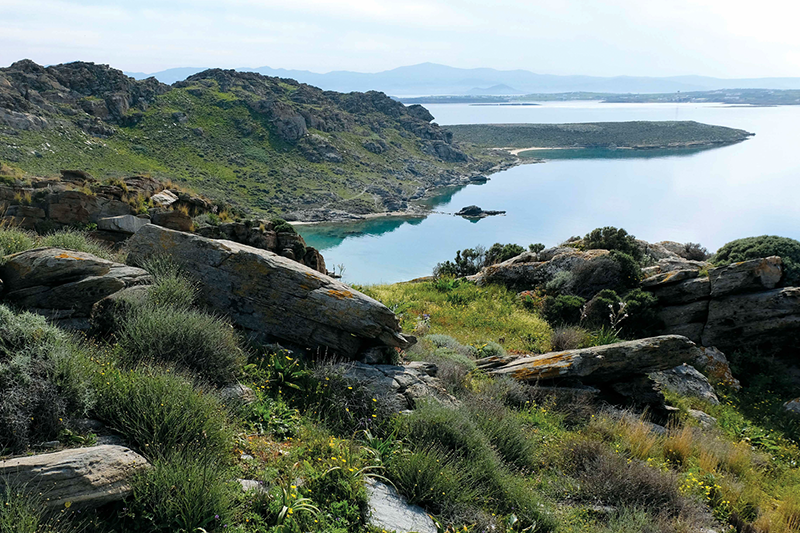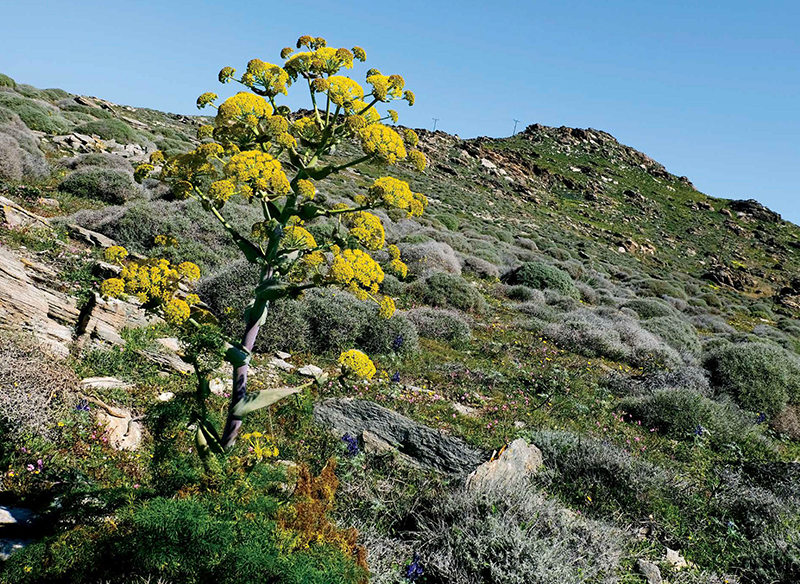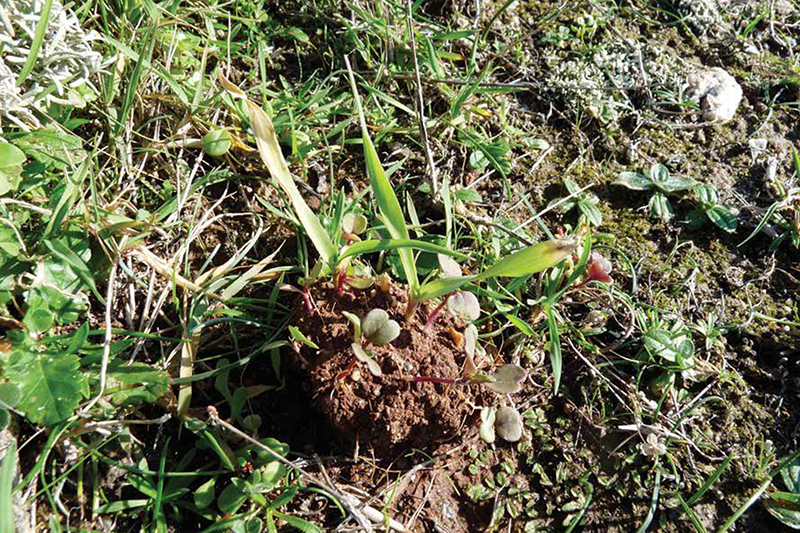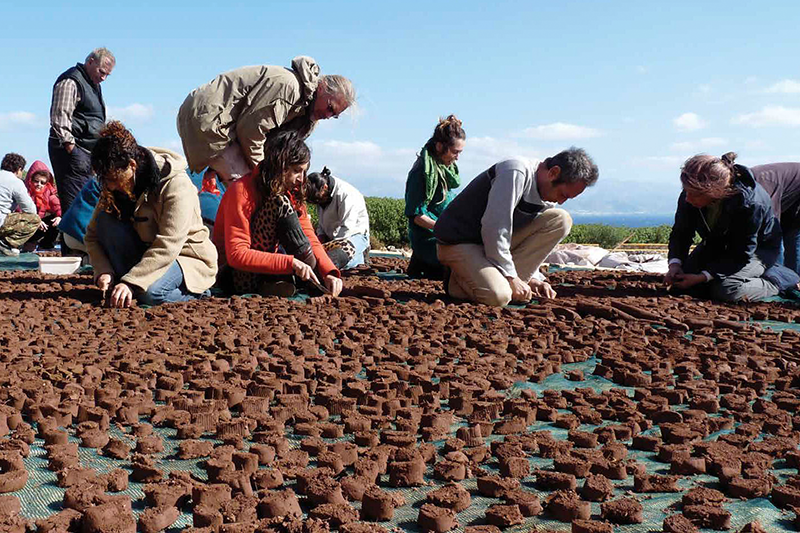
Working with rather than against nature
The peninsula of Ai Yannis Dettis is a typical Cycladic ecosystem: a dry climate, proximity to the sea, a northern orientation and the almost continuous human presence for thousands of years are the main factors that have shaped it.
The peninsula of Ai Yannis Dettis is a unique Cycladic ecosystem: its uniqueness lies in the fact that the visionary Paros Environmental and Cultural Park was built on it. And that changed its fate.
The first and perhaps wisest move to protect the nature of the pen- insula was the creation of a network of walking routes, approxi- mately 7 km long. To appreciate and protect anything, first you need to experience it. Since the creation of the Park, thousands of people from all over the world have walked its trails all year round. With
the additional ban on wildlife hunting and motor vehicles, the Park became a haven of life and beauty for all its visitors.


Equally important and fairly self-evident was the ban on animal grazing, which has ravaged the peninsula for decades. The first signs of an ecosystem recovery became quickly apparent. Grasses, clovers and flowers reappeared amongst the thorny bushes. The eroded soil began to regain its natural mantle of vegetation.
Every year, with the help of school students and volunteers, plant- ings and special seedings were carried out to accelerate the regen- eration of the depleted soil. In 2012, tree seedlings were planted where there were once illegal dumpsites. Trees and bushes typical of the Cycladic flora started to emerge in the landscape: junipers, carob, giant fennel and broom.
Since 2017, with the pilot construction of low rock dams, we man- aged to mitigate soil erosion, let rainwater sink into the soil instead of running off to the sea washing away precious soil, and thus, en- hance vegetation.
In 2018, with the support of the Cyclades Preservation Fund, we de- signed a garden with native plants of Paros near the entrance of the Open Theater, terraced with traditional dry stone wall, constructed by a Parian craftsman. This garden aspires to become a Cycladic Botanical Garden.
The harmonious integration of infrastructure into the natural land- scape was from the outset a fundamental element in the Park’s design: the Theater carved into the bedrock, the open-air cinema in the shade and coolness of the trees, the autonomous solar panel central lighting. For the past ten years, the environmentally con- scious use of the beach and restaurant has consistently provided an alternative model to the brutal exploitation of other organized beaches that have suffered significant ecological degradation, along with the consequent degradation of the tourist product offered. We know that in the next ten years of the Park, a lot of work awaits us on the ecological regeneration of the peninsula as well as the implementation of modern sustainable practices in all the activities and services offered. Nevertheless, we rely on the solid foundation of our ten-year experience, and on the network of people, including supporters, friends and volunteers, together with whom we created a unique space in the Cyclades.


Revegetation
There is no other stretch of land on Paros that has been ca- ressed, dug and planted by so many hands as the Park. Countless inhabitants of the island, among them many chil- dren and students, nature lovers and friends of the Park, have passed through here offering time, work, plants, materials, enthusiasm, know-how, all of them with a shared desire: to see the Park green.
Rebuilding a Cycladic ecosystem is no easy task. A key feature is the slow growth of plants, that evolve cautiously and without haste, depending on the annual weather cycle and the general trends of climate. This slow pace can be frustrating for people who want to see results fast.
But those who are familiar with the laws of nature and have experienced the Park for the past ten years, can testify to its evolution, the recovery of its flora, year after year.
Elena Symeonidou
Environmental Consultant
